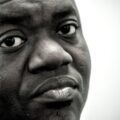Another Zone of Consciousness
“At times I have the feeling that I am writing about three or four different men, each one distinct, each one a contradiction of all the others. Fragments. Or the anecdote as a form of knowledge” —The Invention of Solitude
Few contemporary writers are as polarizing as Paul Auster. Since the publication of his memoir The Invention of Solitude thirty years ago, each new work has engendered such divergent views that it seems as though only two camps of readers exist—Auster devotees and Auster adversaries. Invisible, published in 2009, is a case in point. Writing in The New York Times Book Review, Clancy Martin raved that the book demands immediate rereading: “You want to reread Invisible because it moves quickly, easily, somehow sinuously, and you worry there were good parts that you read right past, insights that you missed.” In a comprehensive take-down of Auster’s oeuvre in The New Yorker, however, James Wood states, “One might tolerate the corny Born, and his cinemaspeak, if Adam Walker, who narrates much of the novel in one way or another, were not himself such a bland and slack writer.” One expects to find opposing views in the literary world, but rarely does a writer inspire such devotion from one camp and condemnation from another. These battle lines will surely be drawn again over the publication of Winter Journal, a work of nonfiction whose maddening inconsistencies are certain to lead to even deeper divisions.
At the beginning of Winter Journal, one month before his sixty-fourth birthday, Auster decides, “Perhaps it is just as well to put aside your stories for now and try to examine what it has felt like to live inside this body from the first day you can remember being alive until this one.” Here is the perfect mix of Austerian self-deprecation—“your stories” sounds more like something a parent would say about a child’s first attempts at narrative than an award-winning novelist’s reference to his work—and grandiosity—the belief, present in all autobiographers, that this life is uniquely worth recounting. Auster played with this same mixture in Hand to Mouth, his most recent autobiographical volume, by subtitling it, “A Chronicle of Early Failure.” Published in 1997, that title felt both refreshingly honest and overly modest, coming as it did after remarkable novels like The New York Trilogy andLeviathan. But Auster justifies the decision to turn away from his stories with a comprehensive description of the injuries and damage his body has endured over the years. This list, which takes up the first forty pages of the book, illustrates Auster’s belief that “not a day [has] gone by without some moment or moments of physical pleasure, and yet pains are no doubt more persistent and intractable.” Winter Journal has its share to say about pleasure, but for much of the book pain takes center stage.
Interestingly, the most dramatic story of physical pain happens not to Auster but to his wife, the writer Siri Hustvedt. In a lengthy set piece, Auster describes a car accident the couple and their daughter endured while driving through New York City ten years ago. While emphasizing his renown as “a good driver” and his wife’s concern, on this day, that he is not paying close enough attention, Auster catalogues several unusual ailments that have afflicted him recently, leading him to suspect “that you are disintegrating, that you, who were once nature’s strongman, able to resist all assaults from within and without, impervious to the somatic and psychological travails that dog the rest of humanity, are not the least bit strong anymore and are rapidly turning into a debilitated wreck.” Like much of the nine-page scene, this passage builds suspense by keeping readers from the inevitable conclusion, at the same time that it dramatizes the lack of attention to the road that his wife accused him of at the time. Auster wisely concludes with “wreck,” to remind us that no matter how far he digresses from the story at hand, his family is still headed toward the fateful accident on Fourth Avenue, in Brooklyn.
When the accident finally does occur—Auster misjudges the speed of an oncoming vehicle and tries to turn left in front of it, only to have the van smash into the passenger’s side of his rental car—he and his daughter and their dog are left completely unscathed while Hustvedt, whose door took the brunt of the impact, must wait for the fire department and their jaws of life. In a coincidence worthy of an Auster novel, a young Indian doctor still in hospital scrubs is on the deserted sidewalk and stays with Hustvedt, motionless in the passenger’s seat, whose only symptom is her inability to see color, until the ambulance arrives. Unlike a novel, where such a chance encounter would inevitably lead to a bond of some kind, this man disappears once it is clear that Hustvedt will be all right. In fact, a doctor at the hospital’s only remark on her condition seems to be to tell her that “she had the most perfect, most beautiful neck he had ever seen.” If the accident ends anticlimactically, Auster makes up for this with what he takes from it. Like many other drivers after such an event, he decides to stop driving, though “[n]ot because you don’t trust yourself anymore, but because you are ashamed, because you understand that for one near-fatal moment you were just as stupid and crazy as the woman who crashed into you.” Paul Auster, good driver, writer of books and screenplays, director of movies, finds that in this one moment, his hyper-competence leaves him and he comes dangerously close to being as careless as the woman speeding down Fourth Avenue at sixty miles-per-hour.
Winter Journal covers more than just ailments and illnesses, however. As Auster wrote, “not a day gone by without some moment or moments of physical pleasure.” For that reason, he spends time detailing the progression of his interest in girls and women, culminating with his second marriage, to Hustvedt. Looking back on his sixteen-year-old self, trapped in the repressive atmosphere of the early sixties, Auster perfectly captures the young male’s all-consuming desire: “you feel that you are actually starving to death, and no ambition is more important to you, no cause is more central to the well-being of your aching, starving self than to lose your virginity as quickly as possible.”
Since girls his age are unwilling to help him in this regard, he and a friend visit a prostitute, “a young woman with a remarkably beautiful body, with glorious breasts, glorious arms and shoulders, glorious backside, glorious hips, glorious legs.” The ardor of those repeated gloriouses belies the inevitable stage fright to come. Hearing his friend talking to the other prostitute in the next room, the fear of finishing too quickly vanishes and Auster becomes distracted: “you can feel how bored the girl is, how tiresome this whole business is for her, and even though you are lying on top of her, she is nowhere near you, she is in another city, another country, and then, losing patience, she asks you if you can finish, and you say yes, of course.” But he can’t. What should have been a momentous occasion devolves into a hand-job, a scolding hand-job, as the woman says, “You young kids. You jerk off all the time, but when it comes to the real thing, you don’t have a clue.”
Auster spends little time on “the real thing,” with the exception of another encounter with a prostitute, years later in Paris, and candid references to one case of gonorrhea and one of crabs. Here again, the self-deprecating Auster is on display. The supreme storyteller realizes that embarrassing stories like these are both more entertaining and more capable of affording him small codas like, “And you let her jerk you off, which is precisely what you have been doing to yourself for the past three years—with one small difference: better her hand than yours.”
In 2003, Paul Auster told a Paris Review interviewer that he “was always drawn to books that doubled back on themselves, that brought you into the world of the book, even as the book was taking you into the world. The manuscript as hero, so to speak.” Although he was referring to novels like Wuthering Heights, Winter Journal achieves a similar effect through its structure. The very nature of a journal implies a less formal organization than a memoir or an autobiography, and this allows Auster to double back to his various preoccupations—injuries and illnesses, sex and intimacy, family—rather than covering them one at a time. Such a structure gives the illusion of greater access to Auster’s mind, to the nonlinear way in which he thinks, a feature that is heightened by his reference to himself as “you.” The second-person singular is often a way for writers to distance themselves from their subject matter; at the same time, it is traditionally used as a way of including the reader in the experiences of the narrative. While such a move risks seeming like a cheap trick, in conjunction with the highly associative nature of Winter Journal’s structure, it puts readers in Auster’s consciousness, allowing us to experience “[A]nother zone of consciousness,” as Auster once imagined one did in the moments before death.
Unfortunately, Winter Journal’s flaws threaten to obscure this accomplishment at the same time that they highlight the differences between fiction and nonfiction. Unable to sleep one night, Auster watches an old film, D.O.A., and delivers a lengthy, nine-page summary of its plot solely because he believes he felt like the main character in the days after his own mother died. Unlike the movie descriptions in The Book of Illusions, which were integral to the novel’s characters and plot, this one lacks a pay-off. Auster ends the section with the most basic of film critique: an explanation of what he would have done differently if he had been the main character.
Another Austerian fictional trope that suffers in this book is the insertion of a “found document.” In this case, the document is a sampling of the minutes Hustvedt took during their co-op board’s meetings, minutes that he claims are “entertaining, tongue-in-cheek reports that were warmly appreciated by everyone involved.” I have no doubt that he is correct, but readers not involved in the day-to-day operation of Auster’s building will be hard-pressed to find much of interest in this mercifully-brief section, with the exception of a quick jab at the author: “The man’s bread and butter, after all, is in the making of fictions, and occasionally this submersion in the world of imagination colors that other world, known for lack of a better expression as the Real World.” This works for a number of reasons. To begin with, as Paul Auster is the person readers are most invested in, we’d rather hear about him than the flooding in the building’s basement. In addition, we are confronted with the irony of one “mak[er] of fictions” criticizing another for not living in “the Real World.” Finally, it calls into question Auster’s interpretations of what he has already recounted. If his residence in “the world of imagination” has so altered his perception of “the Real World,” we must proceed even more cautiously in Winter Journal, thereby going deeper into this work’s “zone of consciousness.”
These problems pale in comparison to the Fallacy of the List. Winter Journal is full of lists—every place Auster has ever lived, all the foods he enjoyed in his youth, what he misses from “the old days”—some only a few lines long, others extending for pages. Presumably, the author’s belief is that comprehensiveness will provide readers the best sense of what it is like to be Paul Auster. But these lists become tedious very quickly. One first problem is repetition. For instance, the fifty-six page catalog of every place he has ever lived includes descriptions that begin, “Another,” “Yet another,” and “Still another,” which leave the reader wondering if comprehensiveness should have been the goal. Perhaps it would have been better to stick to the noteworthy locales rather than going through all twenty-one addresses, plus countless more places he visited for extended periods. Beyond repetition, Auster’s compulsion for listing occasionally risks becoming tedious due to the mundanity of their contents. In a section on the foods he enjoyed as a boy, Auster writes:
On any given morning, you would begin with a first course of cold cereal (Corn Flakes, Rice Krispies, Shredded Wheat, Puffed Wheat, Puffed Rice, Cheerios—whatever happened to be in the kitchen cupboard), which you would pour into a bowl, douse with milk, and then coat with a tablespoon (or two tablespoons) of white refined sugar. Followed by a serving of eggs (scrambled mostly, but occasionally fried or soft-boiled) and two pieces of buttered toast (white, whole wheat, or rye), often accompanied by bacon, ham, or sausage, or else a platter of French toast (with maple syrup), or, rarely, but always most coveted, a stack of pancakes (also with maple syrup).
The ordinariness of this list, of which this is but an excerpt, leaves one searching for something interesting to grab hold of. The closest Auster comes is the reference to pancakes as the “always most coveted” food, though instead of following up on this detail, he simply moves on to the varieties of sandwiches he enjoyed for lunch.
Auster’s first memoir, The Invention of Solitude, displays a far more nuanced use of lists. In describing what he found when he went through his newly-deceased father’s house, Auster wonders:
What is one to think, for example, of a closetful of clothes waiting silently to be worn again by a man who will not be coming back to open the door? Or the stray packets of condoms strewn among brimming drawers of underwear and socks? Or an electric razor sitting in the bathroom, still clogged with the whisker dust of the last shave? Or a dozen empty tubes of hair coloring hidden away in a leather traveling case?—suddenly revealing things one has no desire to see, no desire to know.
This list, expertly deployed, gives readers a picture of Auster’s father at the same time that the selection of details hints at the author’s feelings toward his father. Instead of cataloging everything in his father’s bedroom and bathroom, Auster focuses on condoms, whisker dust, and hair coloring—hidden from sight, presumably out of vanity—to suggest that his father was verile and, perhaps, a little vain. In addition, the description of the state of these objects emphasizes the suddenness of his father’s death. All of this would have been lost in the comprehensive style of listing in the later book.
Ultimately, Winter Journal is a book about the inevitability of aging, as Auster signals from the beginning: “You think it will never happen to you, that it cannot happen to you, that you are the one person in the world to whom none of these things will happen, and then, one by one, they all begin to happen to you, in the same way they happen to everyone else.” The excessive listing and occasionally-clunky prose aside, the book takes on the same qualities as another such book, Gerald Stern’s elegiac What I Can’t Bear Losing, in that both works seek to create a record of the author’s existence and experience, as much for themselves as for their readers. Winter Journal closes with one final list, of physical movements and sensations, the conclusion of which is worth quoting at length:
Holding your infant children in your arms.
Holding your wife in your arms.
Your bare feet on the cold floor as you climb out of bed and walk to the window. You are sixty-four years old.
Outside, the air is gray, almost white, with no sun visible. You ask yourself: How many mornings are left?
A door has closed. Another door has opened.
You have entered the winter of your life.
Auster’s writing here is so spare and beautiful that readers almost miss the echo of the book’s opening page: “Your bare feet on the cold floor as you climb out of bed and walk to the window. You are six years old.” Perhaps the book’s drawbacks are simply the result Auster’s desire to fit it all in, everything he’s experienced between six and sixty-four. No matter its weaknesses, Winter Journal cannot be faulted for this.
About Matthew Duffus
Matthew Duffus is the author of the novel Swapping Purples for Yellows and the poetry chapbook Problems of the Soul and Otherwise. His collection Dunbar's Folly and Other Stories is forthcoming in October 2020.





